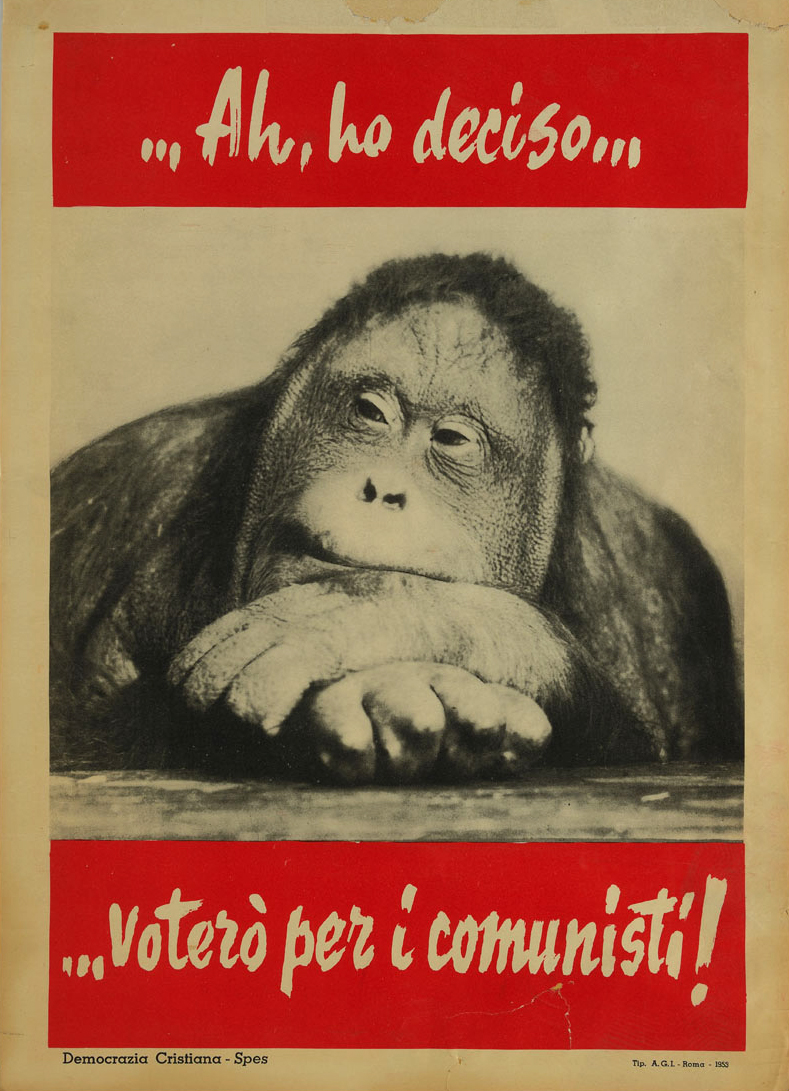Trusting US to keep to its agreements and promises is so lol. The US has a bigger military, why the fuck would we do that?
https://twitter.com/twittarmatthaus/status/1636247148663644160
such a huge financial policy is being forced onto them as a result of US financial colonialism.
Welcome to being a Global South country, EU.
I still can't believe they don't see it.
In the last year alone the US has effectively demilitarized you, cut off your primary energy supply, forced you into being beholden to them for much more expensive energy, announced a slew of legislation to onshore EU companies and workers to the US, and undermined the incentive or European banking.
I genuinely want to know how the fuck every european journalist flipped a switch at the beginning of this war and overnight became a rabid American exceptionalist.
Plus corporate controlled media. The EU actually just launched a limited pilot inquiry into EU media ownership but obviously in this case its waaaay too little waaaay too late.
It has been like this since World War 2, remember the US provided lend-lease and debt payments to the British Empire under conditions that would destroy Great Britain as a rival competitor
Oh absolutely, but my point is that's all the more reason they should see it coming.
A lot of people are fatally short-sighted, especially people who think themselves as exempt from the forces of history
I chalk it up to a failure of imagination. Europe has for so long suckled at the US teat that having ideas of their own seems an utterly foreign concept. They could...but they'd have to cast off 80 years of what they've long been accustomed to.
The really hilarious part is Trump wanted to take Europe behind the woodshed for being useless, sanctimonious freeloaders. Now the deep state is doing it instead. They're going to get all the credit.
Europe in particular, but also the rest of the world, will have to choose between two strategies: either to invest their ‘surplus capital’ (‘savings’) in financing the US consumption, investment and military expenditure deficit; or to use the surplus as a boost for the economy in their own countries.
- Samir Amin
Think it's pretty clear what the EU has done...
A jungle is a lush and healthy world, it’s just not your world. Keep out.
Just want to get ahead of the euros on this one and declare: you guys don’t get to use that for clout like we do, it is your fault we are in this situation anyway
They have the privilege of being fateful thats why
You can believe two things at once, both with conviction. Brains are just weird like that.
The people in charge of monetary and military policy aren't. This is how you get stories of American elites reading Mao.
The neoliberal option for Europe, reinforced by a supposedly ‘nonpolitical’ management of its common currency (the euro), is a major handicap for any strategy to lift the continent clear of stagnation. This absurd monetary policy suits Washington down to the ground, since the US currency (the dollar) is managed in a quite different, thoroughly political manner that has nothing to do with neoliberal dogma. Combined with the possibility that Washington will gain exclusive control over the world’s oil reserves, it ensures that what I call the oil/dollar standard will remain in the end the sole international monetary instrument, relegating the euro to the status of a subaltern regional currency.
The EU truly believe the neoliberal dogma, the US don't. It's why they manage their currency in the way they do, it's why they bail out the capitalists, it's why they did the oil wars, it's why everytime someone tries to sell oil in alternative currencies they get invaded by the US.
https://www.theguardian.com/us-news/2021/jun/24/critical-race-theory-general-mark-milley-defence-military
Milley defended the curriculum and said: “I’ve read Mao Zedong. I’ve read Karl Marx. I’ve read Lenin. That doesn’t make me a communist. So what is wrong with understanding, having some situational understanding about the country for which we are here to defend?”
Lmao at the idea of chuds at military academies and bootcamp reading Mao edgily at night under candlelight.
Remember the cadet at West Point who was about to graduate, who was photographed with a 'COMMUNISM WILL WIN' card under his hat he was about to wear while walking across the stage to get his diploma?
Lmao yh that was surreal. While it entered meme history I'm not sure whether it was pragmatic for him... Was/is he a actual comrade? If so hope he's safe.
He got kicked out of the army for that and now hosts an anti-imperialist podcast
"You've got to understand the enemy private! No investigation, no right to speak!"
Despite the undeniable volume of coolaid I don't think that the European neoliberal project of the EU, the ECB and so on would have been able to function at the (admittedly not very high) level they have been able to so far if literally all of them drank their own coolaid. I think there are definitely high level administrators in the key european economic and financial institutions like the ECB who are equally awre as American financiers and monetary policy makers of what maintaining the financial and monetary system actually entails, e.g. throwing industrial capitalism shibboleths about investors needing to accept the risks of their investments (whatever form) out the window. They know that you don't through the baby out with the bathwater.
If you read Fed economic papers there's often alot of coolaid as well.
Rule 1: obey the US;
Rule 2: when in doubt, refer to rule 1.
It's hilarious that Europeans have really drunk their's and the yankie's coolaid on the the nature and purpose of the financial sector. My brothers and sisters in Moloch, you'd literally been artificially supporting your economy through desperate expansionary monetary policy for like nearly 15 years. You surely all know that money is a totally artificial and that it's production is a public monopoly. You know that when necessary there are fewer limits to using it than we're all taught.
All finance will be nationalized into a single state central bank the sole purpose of which is to manage the institution of money or its successor means of exchange and measures of work-time during a period of socialist transition.
its kind of a public-private monopoly. the Fed is technically publicly administered but its shareholders are private banks, and those banks appoint most of the Fed's board members
Yh I should have been more clear on meaning that it is a monopoly of the state, which includes the Fed and the high level private corporate interests like private bansks, monopolies and cartels. What you've highlighted is the corporatist nature of the modern capitalist state.
This highlights the ambiguous nature of private financial institutions, which often seem to blend into state institutions, as you note when you highlight how the Fed's shareholders are private banks (but, ultimately, it is the central bank which creates all the money which those firms then end up with and circularly invest or save with the central bank) and that those banks appoint board members. Its a revolving-door world because they are all part of the capitalist state. I'm not speaking just about the Fed, which is one institution within the state, but which plays a key role in the creation and managing of money. Money itself is always a monopoly of the state. The state, in the marxist sense, is not simply the government or the narrow set of institutions that liberals refer to as the 'state'. Its an organic, necessary type of structure or institution which is an expression of capitalist class power. The largest corporations cannot be fully separated from the state, imo.
The capitalist state needs money, and its monopoly of control over it (dramatic examples in the case of quantitative easing), in order to reproduce capitalist social relations, i.e. generalized commodity production, because that is the purpose of the capitalist state and money is a necessary expression or form of capital under capitalism. The fetishitic belief in the value of money as the universal expression of value (which itself makes money socially, objectively real - comrades are wrong in a really fundamental way when they say that money isn't real) it key to the functioning of capital and for the type of social organization and planning (which, in financial capitalism, develops more and more closely towards a form of centralized planning centralized in the financial sector, aided by the state institutions). The capitalist needs money for universalized price systems so that they can get measures of value (socially necessary labour time) and thus profitability (i.e. to guide them superficially to maximising the rate of profit : r = s/ (c + v) ). They need a common measure for that which is ultimately common to every commodity: abstract labour power / socially necessary labour time. The worker ultimately needs it because they have only their labour power to sell, which cannot easily be bartered, meaning they need a universal means of trade for their own reproduction. The demand for money is thus endogeneously universalized within capitalism. It is inextricably linked to capitalist social power. The demand for it, and the belief in its value, ensures the objective economic domination of the capitalist class over us. If necessary, the state ,which, structurally, exists necessarily to support conditions of capitalist social reproduction, will act against the interests of individuals capitalists and firms if they take it to be in the interest of capitalism as a whole, for instance letting banks go bust while trying to avoid systemic risk leading to the collapse of the functioning of all of the financial sector and monetary system. In this way it doesn't act like other, private, capitalist social organizations.
Its because they need it and control over it that they will never accept ancap, libertarian pipe-dreams of allowing anyone from your mother to your priest to your dog to set up a competing currency, leaving aside the reasons why that is a ridiculous idea anyway.
A contradiction is that capitalism needs a state which maintains monopoly over this public asset - money - even though it is inevitably determined, used in the service of, and ultimately controlled, especially since the neoliberal reaction, by private capitalist interests, while it is also clearly socially rational to bring any such institution under public control. Of course that would be inconsistent with capitalism and (hopefully) imply a socialist economy under a socialist state directed by a democratic proletarian dictatorship.
You highlight the importance of this growth of corporatism which is so natural to the finance-monopoly imperialist stage of capitalism, especially in its rejuvenation in the reaction of neoliberalism. This is setting the stage for the highest stage of imperialism - fascism The explicit power of corporations, especially financial and multinational monopolies, in whose interest the state and thus the monetary system is wielded, further intensifies commodifcation, exploitation, alienation, postmodern culture, cynicism, and sets the state for the reaction against international finance capitalism that elements of the capitalist state will then exploit and use to, paradoxically, support itself by more fully actualizing fascism.
I think its worth noting though that there are real tensions between different parts of the ruling classes regarding how to use the monetary system. Many national capitalists and business owners who have to engage in real production and are not simply investing in financial assets have not been happy with the monetary tightening, because it limits their access to credit and increases their interest rates, as well as slowing down an economy they depend upon for demand. It has been more in the interest of the financier class. The coup of Truss within the Tory part, installing a financial sector puppet like Sunak, was done for similar reasons. This simply reflects a contradiction between national and international or financial capitalists, although I think we sometimes exaggerate the extent to which this is reflected in differences in party-support. Obviously again important for understanding fascism because the national bourgeoisie and petit-bougies whose interests contradict those of the international finance-monopolists in some respects themselves play key roles historically in supporting and benefitting from fascism.
Edit: TLDR - the exclusive normative universality of money as a measure of value (which is socially objective, it really structures society) is enforced and ensured by the exclusive universality of the state and its monopolies on violence and money itself.
great effort post :order-of-lenin: yeah i didnt get that you were talking abt the concept of money in general and i was just commenting on the actual creation of new money. love ur analysis of the contradictions between national vs international bourgeoisie and how it relates to finance capital!
I mean half the EU leadership is coming from McKinsey, it's totally expected
EU is saying SVB was too small to allow all depositors to withdraw.
Central to those regimes was imposing losses on owners, bondholders and other unsecured creditors, including depositors with funds exceeding their country’s guarantee limit.
Owners, bondholders and creditors I couldn't care less about but depositors even in a tech sector bank like SVB have lots of cash in deposits which they use for payroll and other expenses. Not to say, it'll cause problems in other banks too (or rather, the problems would've been much worse).
Imo all the failed banks should be nationalized and the investors given nothing and the top management jailed (:xigma-male: way) but neoliberalism is dogshit.
However, a European regulator said that claim was a “joke” as US banks were likely to pass the cost on to their customers. “At the end of the day, this is a bailout paid for by the ordinary people and it’s a bailout of the rich venture capitalists which is really wrong,” he said.
If EU cared that much about evil vulture capitalists, they would keep banking under public sector. But they didn't do that because markets good or whatever.
https://www.ft.com/content/5e4a8dde-c053-4510-8cd9-8aecb9082a6e
I've been going back and forth on this. I'm starting to lean towards that they shouldn't have insured depositors and should have guaranteed payroll up to a certain amount instead. These companies put all of their eggs into one basket because it paid a higher return, which means higher risk. Not only the bank, but many of their customers have fought against regulation or stayed quiet while the banking industry and SVB pushed to be exempted from regulation. If they want their cash fully insured, then depositories should, at the very least, be regulated like public utilities.
So the eu would of let them all fail apparently. And they would be good little fools to do so. American companies would sweep in and purchase billions worth of companies for probably very little.
This is also why so many random financial people here are up set in the usa. The federal govt just saved a bunch of lousy companies, many that will never actually make money, denying other elites to absorb those companies. The feds just back stopped crypto and a bunch of tech vapor ware.
In just how many different ways, can the Americans say "fuck the EU", before the Europeans finally get the message? Amazing...
they thought the Marshall Plan was a pledge of undying loyalty instead of a self-serving scheme to circulate capital flows and stave off global socialism. meanwhile Operation Gladio got its hands dirty and the US stationed backpack nukes in Europe (The Littlest Boy)
Crucially the countries being hit by operation gladio weren't really the ones that got marshall plan'd and latter one is running the EU
It's only sometimes fatal, sometimes you get luckier and it only costs $360 billion
To act fairly would be to follow the rules. To act capriciously is to be the rules.
If Europe places itself entirely on the ground of mercantile disputes, without advancing any project of its own, it will have been defeated in advance. People in Washington are well aware of that.
In my view, however, the United States has no decisive economic advantages within the system of collective imperialism; on the contrary, scarcely any of its sectors could be certain of seeing off competitors in the kind of truly open market imagined by liberal economists... Indeed, without extra-economic means that violate the ‘liberal’ principles imposed on its rivals, the United States would probably not be able to compete... Washington uses various means to make up for its deficiencies: for example, repeated violations of the principles of liberalism.
- Samir Amin, beyond US hegemony? Assessing the prospects for a multipolar world, 2006
Hmm...I would disagree. The US is the Saudi Arabia of food. Well over self-sufficient and a major exporter. We were also (briefly, under Trump) self-sufficient in energy. No need for energy = no more Middle East wars.
But of course nobody wants the wars to end, so a flimsy excuse like "we don't need the oil any more" won't fly at all.
It's more about how if the US had to follow the rules and principles of liberalism, it would be outcompeted. A good example of this was with Japan and technology in the 70s and 80s, in which the US had to break the rules of liberalism to maintain an advantage. The US would seethe at how the Japanese handed out subsidies to their own companies and rather use their own suppliers, claiming it was unfair, even though that's how pretty much all US industry operated post WW2. (This is before all industry was moved to China). Only the US is allowed to "cheat" the economic principles of liberalism. No one else can. So Reagan got export constraints passed on Japanese cars, the US government co operated with business to get a trade agreement passed to allow IBM and TI to sell semiconductors in Japan and share technology with them. This allowed the US to "steal" trade secrets from the Japanese companies that allowed for their advantage.
Balkanization of the US would be the single greatest step to securing world peace.













